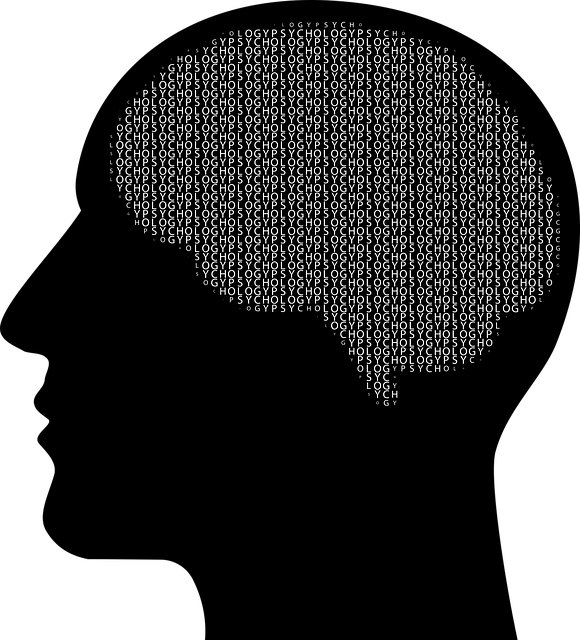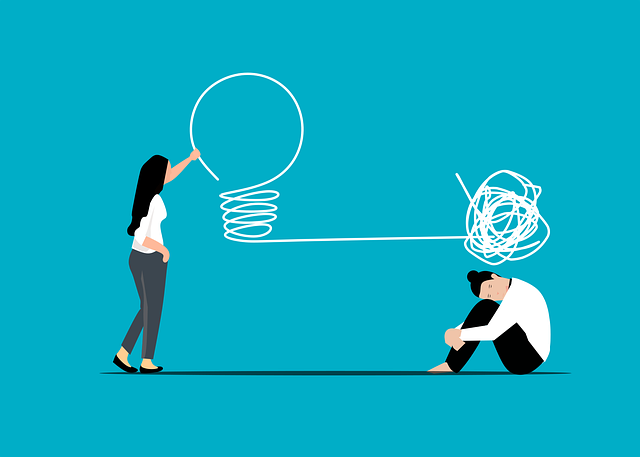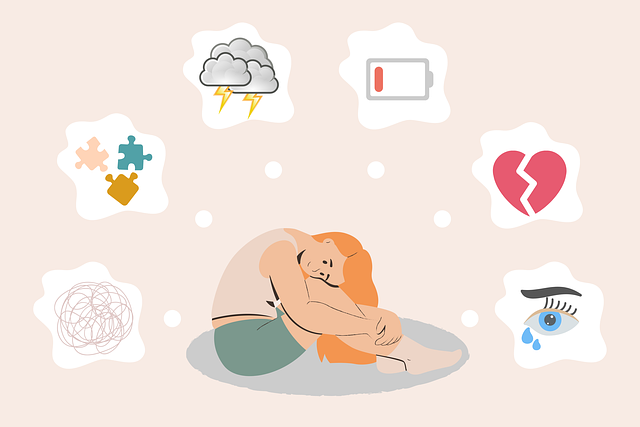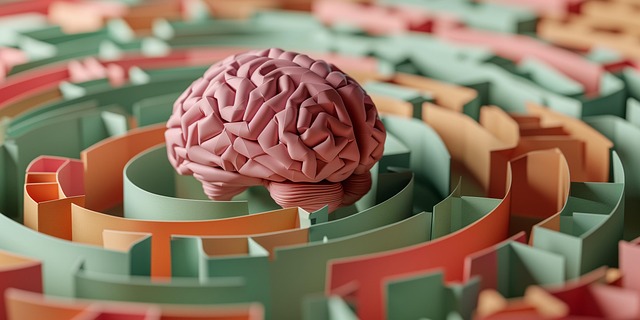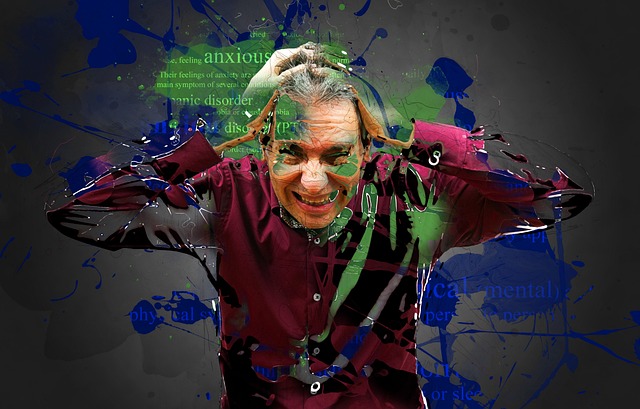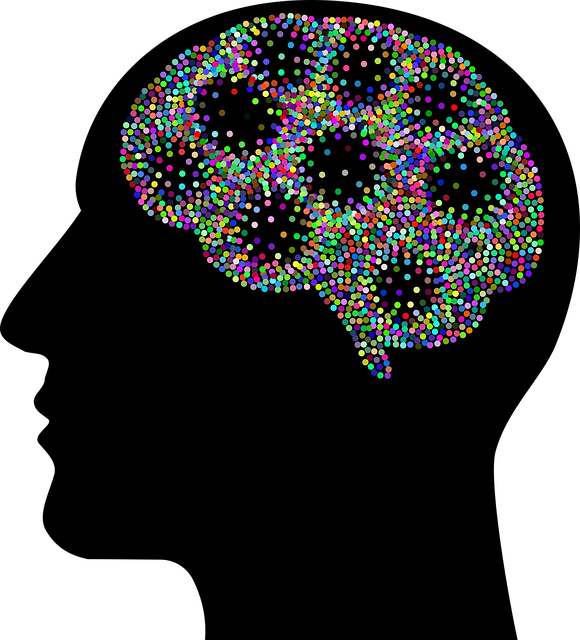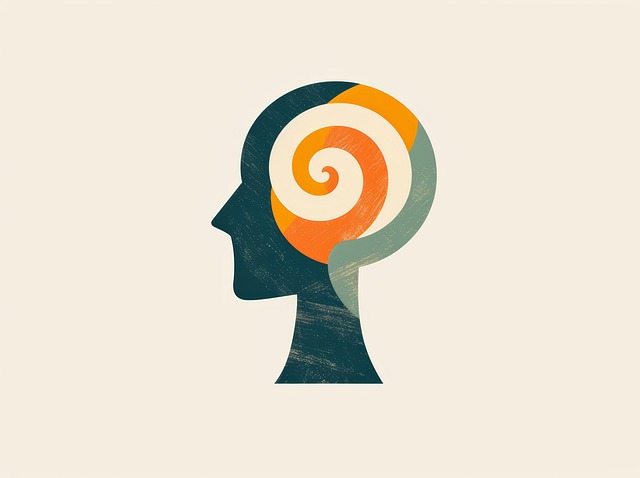Longmont EMDR Therapy provides specialized support for individuals dealing with loss and grief, using evidence-based techniques like Eye Movement Desensitization and Reprocessing (EMDR) to process traumatic memories. This approach helps clients develop healthier coping mechanisms, manage moods, and find resilience through self-care practices and crisis intervention. By integrating stress reduction and conflict resolution techniques, Longmont EMDR Therapy facilitates emotional healing and enables individuals to gradually overcome grief, enhancing overall mental wellness.
In times of profound loss, grief can feel like an overwhelming tide. Understanding this complex journey is the first step towards healing. This article explores the intricate relationship between loss, grief, and bereavement, providing insights into how Longmont EMDR therapy offers a transformative path to recovery. From EMDR’s role in processing trauma to practical self-care strategies, discover how specialized therapists guide individuals through their unique grieving process. Learn about common challenges and gain valuable tools for navigating this delicate yet essential aspect of emotional well-being.
- Understanding Loss, Grief, and Bereavement: A Complex Journey
- The Role of EMDR Therapy in Healing from Loss
- How Longmont EMDR Therapists Can Assist with Grief
- Common Challenges Facing Individuals after a Loss
- Strategies for Self-Care During and After Bereavement
Understanding Loss, Grief, and Bereavement: A Complex Journey

Loss, grief, and bereavement are deeply personal and complex journeys that vary from person to person. Understanding this process involves recognizing that loss can stem from various sources, including the death of a loved one, major life changes, or traumatic events. Each individual navigates their grief in unique ways, making it a highly subjective experience.
In Longmont EMDR Therapy, counselors employ specialized techniques to help clients work through these complex emotions. This therapeutic approach facilitates the processing of distressing memories and beliefs associated with loss, enabling individuals to develop healthier coping mechanisms. By integrating evidence-based practices, such as stress reduction methods and conflict resolution techniques, therapists empower clients to manage their emotional pain effectively, fostering resilience and a renewed sense of well-being.
The Role of EMDR Therapy in Healing from Loss

Loss, grief, and bereavement can profoundly impact an individual’s mental health and daily functioning. Here, Eye Movement Desensitization and Reprocessing (EMDR) Therapy emerges as a powerful tool for healing. This evidence-based approach is designed to help people process traumatic memories and emotions associated with loss, offering a unique way to navigate the grieving process.
Longmont EMDR Therapy goes beyond traditional counseling by facilitating the brain’s natural healing mechanisms. Through specific hand movements or other bilateral stimulation techniques while recalling distressing memories, individuals can desensitize themselves to these memories’ emotional charge. This process enables better coping skills development and mood management, allowing those affected by loss to find solace and rebuild their lives. The therapy encourages open communication strategies, helping clients express their feelings and gain insights into their grief journey.
How Longmont EMDR Therapists Can Assist with Grief

In the face of profound loss and grief, individuals often seek support to navigate this challenging journey. Longmont EMDR therapists play a pivotal role in assisting those grappling with bereavement. Eye Movement Desensitization and Reprocessing (EMDR) therapy is an evidence-based approach that helps clients process traumatic memories and emotions associated with their loss. Through specialized techniques, EMDR facilitates the brain’s natural healing process, allowing individuals to work through feelings of sorrow, anger, or guilt that may arise post-grief.
These therapists provide a safe space for clients to explore their emotions without judgment. They offer compassion cultivation practices and crisis intervention guidance tailored to each individual’s unique experience. By integrating self-care routine development for better mental health into the therapeutic process, Longmont EMDR therapists empower individuals to heal and find resilience during and after the grieving process.
Common Challenges Facing Individuals after a Loss

After experiencing a significant loss, individuals often face a myriad of challenges that can significantly impact their mental wellness. Common struggles include intense feelings of sadness, anger, guilt, and confusion, which may manifest as persistent crying, irritability, or a sense of disorientation. Many find themselves facing difficulties in performing everyday tasks and maintaining relationships—a symptom often referred to as functional impairment. This phase is characterized by disrupted sleep patterns, changes in appetite, and even thoughts of self-harm, highlighting the urgency for support during these vulnerable times.
Longmont EMDR therapy has emerged as a powerful tool in navigating these challenges. Incorporating evidence-based practices such as eye movement desensitization and reprocessing (EMDR), this therapeutic approach assists clients in processing traumatic memories associated with loss. By facilitating positive thinking and emotional healing, Longmont EMDR therapy empowers individuals to gradually overcome grief and bereavement, allowing them to rebuild their lives and foster social skills training for stronger interpersonal connections. In light of these strategies, the journey towards mental wellness becomes more manageable, offering a glimmer of hope in what can feel like a dark tunnel.
Strategies for Self-Care During and After Bereavement

Grief is a natural process that requires consistent self-care to navigate. During and after bereavement, individuals can find solace through various strategies designed to support mental health. One effective approach is Longmont EMDR Therapy, which helps process traumatic emotions and memories associated with loss. This therapy facilitates the brain’s natural healing process by reprocessing distressing experiences, allowing for a gradual reduction in emotional intensity.
In addition to professional treatment, engaging in regular self-care practices can significantly enhance one’s ability to cope. This includes maintaining a balanced diet, staying hydrated, and incorporating physical activity into daily routines. Finding moments for relaxation through activities like meditation, journaling, or spending time in nature also contributes to overall mental wellness. Mental Health Education Programs Design and Mental Wellness Podcast Series Production can provide valuable resources for understanding grief and accessing support systems, further emphasizing the importance of self-care during this challenging period.
Loss, grief, and bereavement are profound experiences that can significantly impact an individual’s well-being. By understanding these complex journeys, we can recognize the value of professional support, such as Longmont EMDR Therapy, in facilitating healing. This therapeutic approach has proven effective in helping individuals navigate their emotions and find solace after a loss. With the guidance of trained therapists, those affected by grief can develop coping strategies, process their feelings, and ultimately, embrace a path towards emotional resilience. Embracing self-care practices alongside professional support is key to navigating this challenging yet transformative journey.


